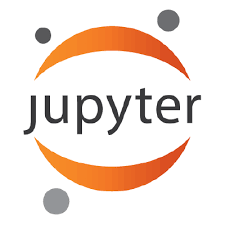Undergraduate programs in science and engineering include at least one course in basic programming, but seldom presented in a contextualized format, where computing is a tool for thinking and learning in the discipline. We have created a series of learning modules to embed computing in engineering education, and share this content under permissive public licenses. The modules are created as a set of lessons using Jupyter notebooks, and complemented by online courses in the Open edX platform, using new integrations we developed. Learning sequences in the online course pull content dynamically from public Jupyter notebooks and assessments are auto-graded on-the-fly, using our Jupyter Viewer and Jupyter Grader third-party extensions for Open edX (XBlocks). The learning content is modularized and designed for reuse in various formats. In one of these formats---short but intense workshops---our university library is leveraging the curriculum to offer extra-curricular training for all, at high demands.
翻译:科学和工程的本科生课程至少包括一门基础编程课程,但很少以背景化格式提供,其中计算机是学科中思考和学习的工具。我们创建了一系列学习模块,将计算机纳入工程教育,并在允许的公共许可下分享这一内容。这些模块是用Jupyter笔记本创建的,并由开放编辑X平台的在线课程加以补充,使用我们开发的新整合。在线课程的学习序列动态地从公共Jupyter笔记本上提取内容,评估是自动的,使用我们的Jupyter Viewer和Jupyter Gripper 用于开放编辑X的第三方扩展软件(Xxxxx)进行实时化。学习内容是模块化的,设计用于不同格式的再利用。在这些格式短而密集的讲习班中,我们的大学图书馆正在利用课程在高需求下为所有人提供课外培训。





